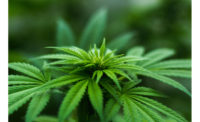Generating $11.6 billion of revenue in 2019, and presently legal in 34 states, Marijuana has become mainstream, profitable, and intensely regulated.
Because current federal illegality prevents transporting Cannabis between states, regulation presently occurs at the state level most particularly in Cannabis food products commonly known as “consumables”.
When it comes to transporting consumables, foodservice distributors should be aware of what products may be sold and the requirements for obtaining a Cannabis transportation license, transporting Marijuana products, and Cannabis transportation record-keeping.
Legalized Marijuana’s Supply Chain
Those cultivating, processing, infusing, transporting or dispensing Cannabis are deemed to be a "plant touching" Marijuana related business (“MRBs”) and, despite being legal in the majority of American states, Marijuana remains federally illegal.
The Controlled Substance Act, 21 U.S.C. §§ 801, Et. Seq (1970) (“CSA”) currently lists Marijuana next to heroin as a Schedule I controlled substance having "a high potential for abuse" and for which there's "no currently accepted medical use in treatment" and "a lack of accepted safety for use" "under medical supervision". 21 U.S.C. §812(b)(1). The CSA prohibits Marijuana's cultivation, distribution, dispensation and possession and, pursuant to the U.S. Constitution's Supremacy Clause, state laws conflicting with federal law are generally preempted and void. U.S. Const., Art. VI, cl. 2.
Because the CSA prevents Cannabis from being sold outside of each respective legalized-Marijuana state and, thus, no “interstate cannabis commerce” can occur, state regulators like Washington State’s Liquor and Cannabis Board (“LCB”), and not federal agencies like the Food and Drug Administration (“FDA”), regulate MRBs.
What Cannabis Infused Products May Be Sold
Whether deemed “medical” (purchasable only with state-issued card to treat resident’s statutorily defined “covered medical condition”) or adult-use (purchasable by anyone over 21 from any state with a valid identification), Cannabis takes four (4) forms: “flower” that is smoked; “oils” ingested by vaporizing; “concentrates” only consumable after being heated to a high temperature; and “infused” products ranging from eye drops to “edibles”. With few exceptions, medical and adult-use Cannabis items are identical and only delineated by their purchasers: medical card “patients; or “adult use” consumers.
In Washington, permissible “Marijuana infused edibles” are defined by the LCB’s as “low hazard foods” not supporting “bacterial or toxigenic growth” like non-refrigerated baked goods (ex., cookies, brownies, fruit pies and tarts), chocolates candies and sugar or syrup based confections (ex., molded chocolates, fruit rolls, roasted coated nuts, and nonbaked bars or granola products), flavored, carbonated and lemonade style beverages, dry mixes (ex., coffee granules, leaf tea, soup mixes, beverage mixes, and seasonings), jams, jellies, roasted nut butters, honey and syrups, and vinegars.
Conversely, the LCB prohibits commercial sale of “potentially hazardous” Cannabis-infused foods including those which: must be temperature controlled (frozen, refrigerated, or hot-holding); require acidification to assure food safety (ex., ready-to-drink tea and barbecue sauce); must be retorted or pasteurized to assure food safety; dairy products (ex., butter, cheese, ice cream, or milk); fruit or vegetable juices (except shelf-stable concentrates); oils and vegetable butters; pies containing egg (ex., pumpkin or custard); and dried or cured meats.
How to Transport Cannabis-Infused Products
Transportation of Cannabis-infused consumables can only presently occur within a “legalized Marijuana state’s” confines by a state-licensed transporter from a state-licensed grow or processing facility to a state-licensed dispensary or retail store.
Washington State’s transportation licensee requirement include that: all drivers carry a valid Washington driver’s license and be at least 21 years of age; consumables be in a sealed, LCB-approved package or container; sealed packages or containers cannot be opened during transport; consumables be in a locked, safe and secure storage compartment secured to vehicle’s inside; and any vehicle transporting consumables must deliver them, or return to the shipper, within 48 hours of pickup. Washington State transportation license applicants must provide the LCB with criminal history background check materials, Utilities and Transportation Commission common carrier permits, and proof of commercial general liability insurance.
The LCB also imposes specific “Marijuana transportation record keeping requirements” upon the manufacture and retailers from, and to whom, the consumables are being transported. Upon transporting any Marijuana or Marijuana product, a licensee must notify the LCB of the type and amount and/or weight of Marijuana and/or Marijuana products being transported, the transporter’s name, and information about the transporting vehicle, times of departure and expected delivery. Similarly, upon receiving the shipment, the licensee must report the amount and/or weight of Marijuana and/or Marijuana products received and a complete printed transport manifest on a LCB provided form which must be kept with the consumables at all times.
Further, because consumables cannot be transported outside of the state, a transportation licensee must have enacted operating procedures ensuring that their drivers never cross state or U.S. borders.
Until Marijuana is removed from the CSA, and the FDA can provide uniform national regulations governing interstate transportation of consumables, foodservice distributors must keep current on each state’s regulations and respective licensing and recordkeeping requirements.


